

The Struggles of Parents Seeking Developmental Support for Their Children
Understanding the Struggles of Developmental Support for Parents
A recent survey conducted by PAPAMO Inc., based in Shibuya, Tokyo, underscores a critical issue affecting families across Japan. It shows that nearly half (48.6%) of parents with children aged 0 to 13, who are concerned about their children's development, are unable to access the supportive services they seek. This alarming statistic introduces us to the concept of "therapy refugees," highlighting the stark reality of unmet needs among families desperately seeking help.
The Survey Findings
The survey involved 2,500 parents and uncovered a myriad of challenges surrounding developmental support services. Key concerns reported included a lack of information (37.8%), financial burdens (17.5%), regional disparities (16.0%), and long waiting times (7.3%). Among these, the reality of nearly 70% of parents currently not utilizing any support services stands out. This statistic reveals that many families are left without the necessary assistance to support their child's developmental needs.
One of the primary reasons identified for parents struggling to acquire support was the uncertainty about whether their children actually require such services—37.8% acknowledged this concern. The ambiguity leaves numerous families in a position of fear and isolation, unsure of where to turn for help.
Parents' Primary Concerns and Discontent
The survey also delved into specific areas of concern regarding children's development. The most frequent worry among parents, at 42.9%, was related to their child's emotional and behavioral aspects. Many parents voiced feelings of frustration due to issues like temper tantrums and hyperactivity. Parents expressed a clear need for guidance on how to manage their children's behavior effectively.
Among those currently receiving support, 82.6% reported facing various challenges with the services available to them. The predominant sources of dissatisfaction included the feeling that the services did not match their children’s needs—26.1% of respondents reported this issue. Additionally, a lack of frequency in attendance and concerns about the adequacy of professional knowledge were highlighted as significant factors contributing to dissatisfaction.
Online Support Services: A Beacon of Hope
Conversely, the survey revealed a high level of interest in online developmental support services, with over 52% of parents expressing a desire to utilize these resources. Such services, especially those provided through platforms like PAPAMO’s "Heyasupo Assist," allow for access to professional guidance from the comfort of home, significantly addressing geographical and temporal restrictions.
Identifying Structural Issues in Support Services
In an open-ended section of the survey, parents articulated pressing challenges regarding developmental support. Analysis of these responses illuminated three structural problems: information disparity, insufficient supply, and service inequality.
1. Information and Consultation Gaps: Parents reported long wait times for consultations, making it difficult to access timely guidance. Many expressed frustration over the current system, which leaves them feeling lost about their child’s needs and the means to address them.
2. Supply Shortages: As demand for developmental support increases, the infrastructure to provide such services has not kept pace. This has resulted in waiting lists and availability issues, leaving many parents in limbo.
3. Equity of Access: There is a significant disparity in the availability of services based on geography and economic standing. Such inequalities create a reality where families in underserved areas struggle to access vital support, often categorizing children as "therapy refugees" due to their circumstances.
Conclusion: Moving toward a New Support Paradigm
The need for reform in the developmental support framework is evident. PAPAMO’s findings signal a pivotal moment where traditional methods of therapy must evolve to meet the growing demand. Parents' overwhelming interest in online services indicates a shift toward more flexible, accessible forms of support that can mitigate the gaps present in face-to-face interventions.
PAPAMO’s mission is to create a nurturing infrastructure that allows all children to experience supportive developmental assistance, regardless of their geographical or economic environment. With technology paving the way for innovative solutions, there lies an opportunity to provide tailored support that can efficiently address the needs of families across Japan. Let us come together to ensure that no child is left behind and that every family can access the support they need for a brighter future.



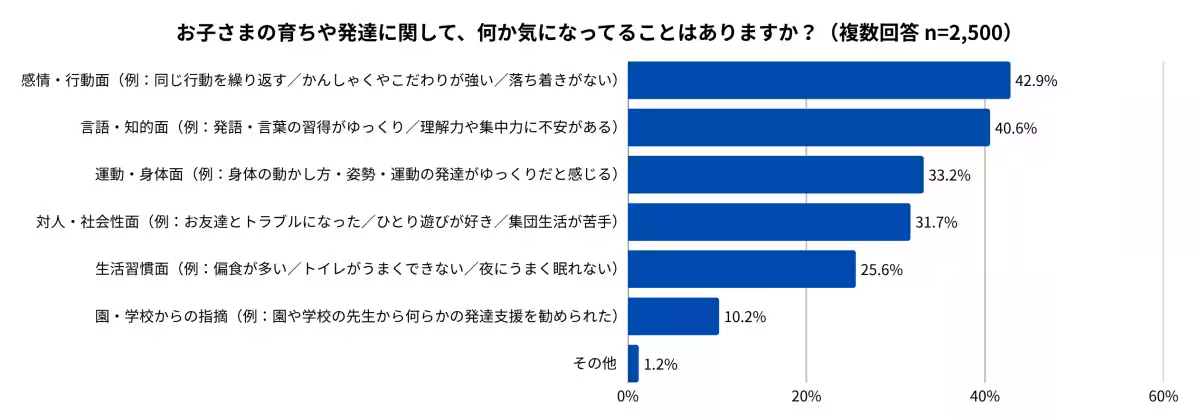
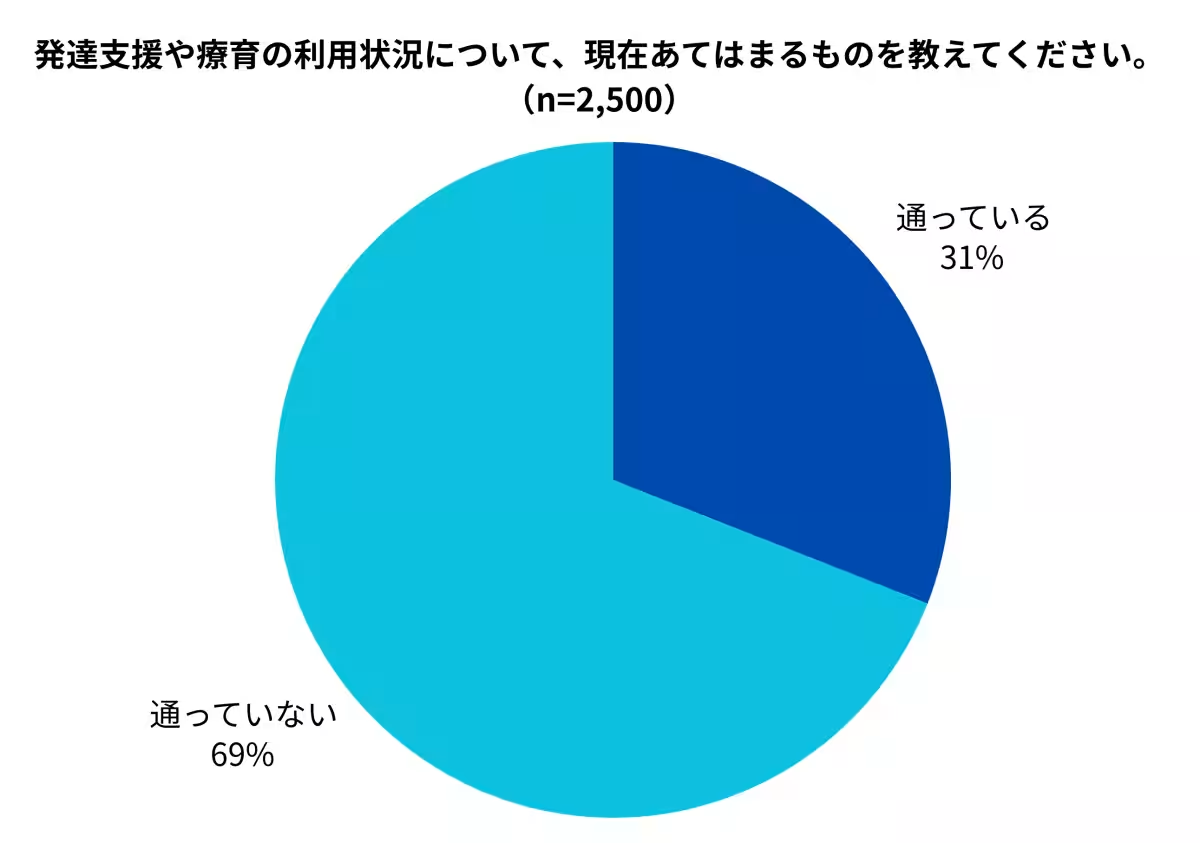
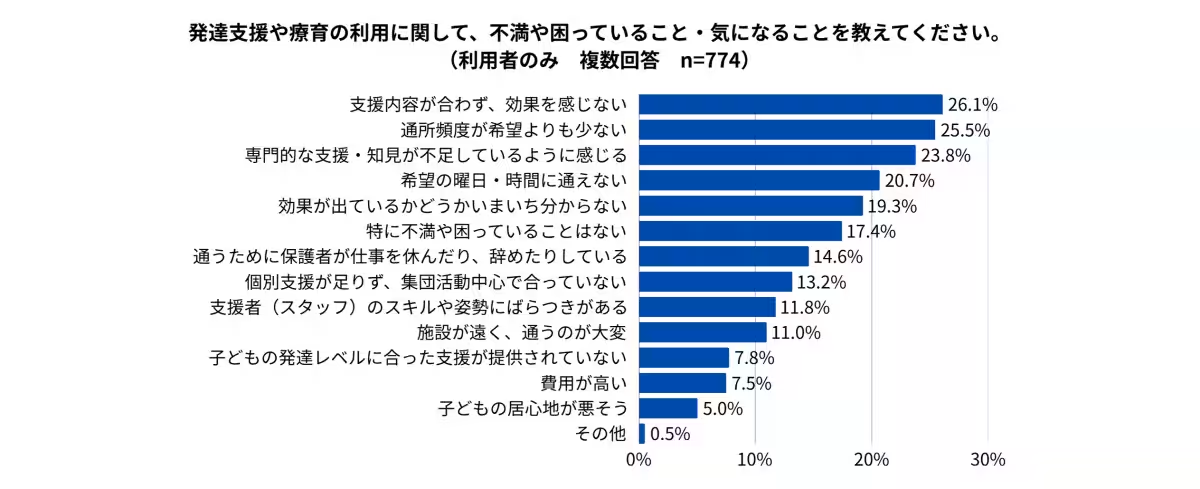
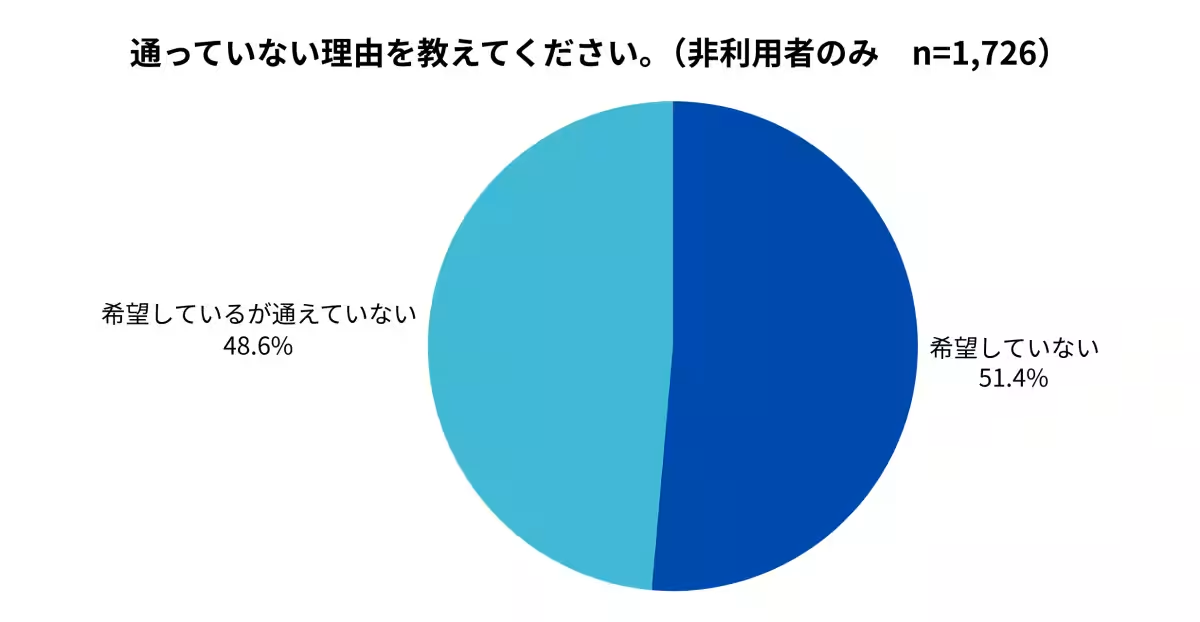
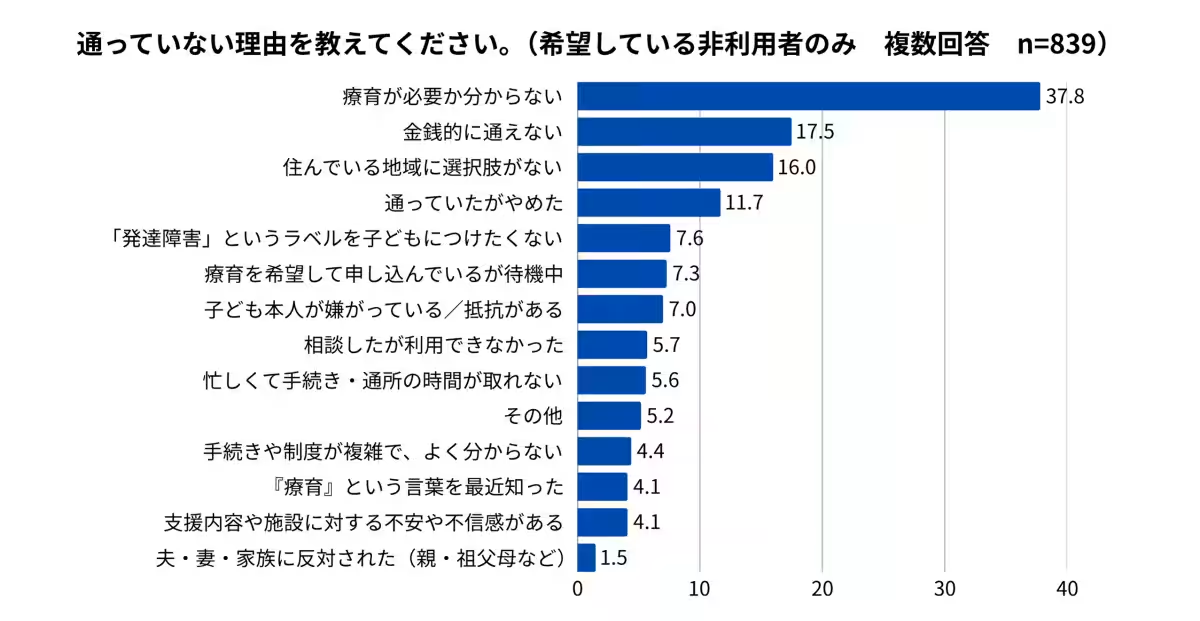
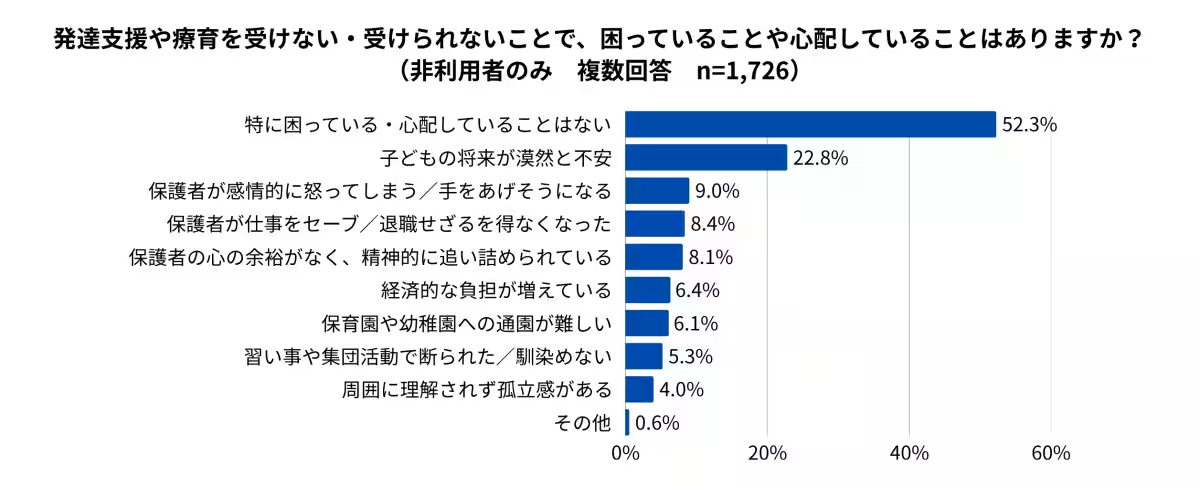
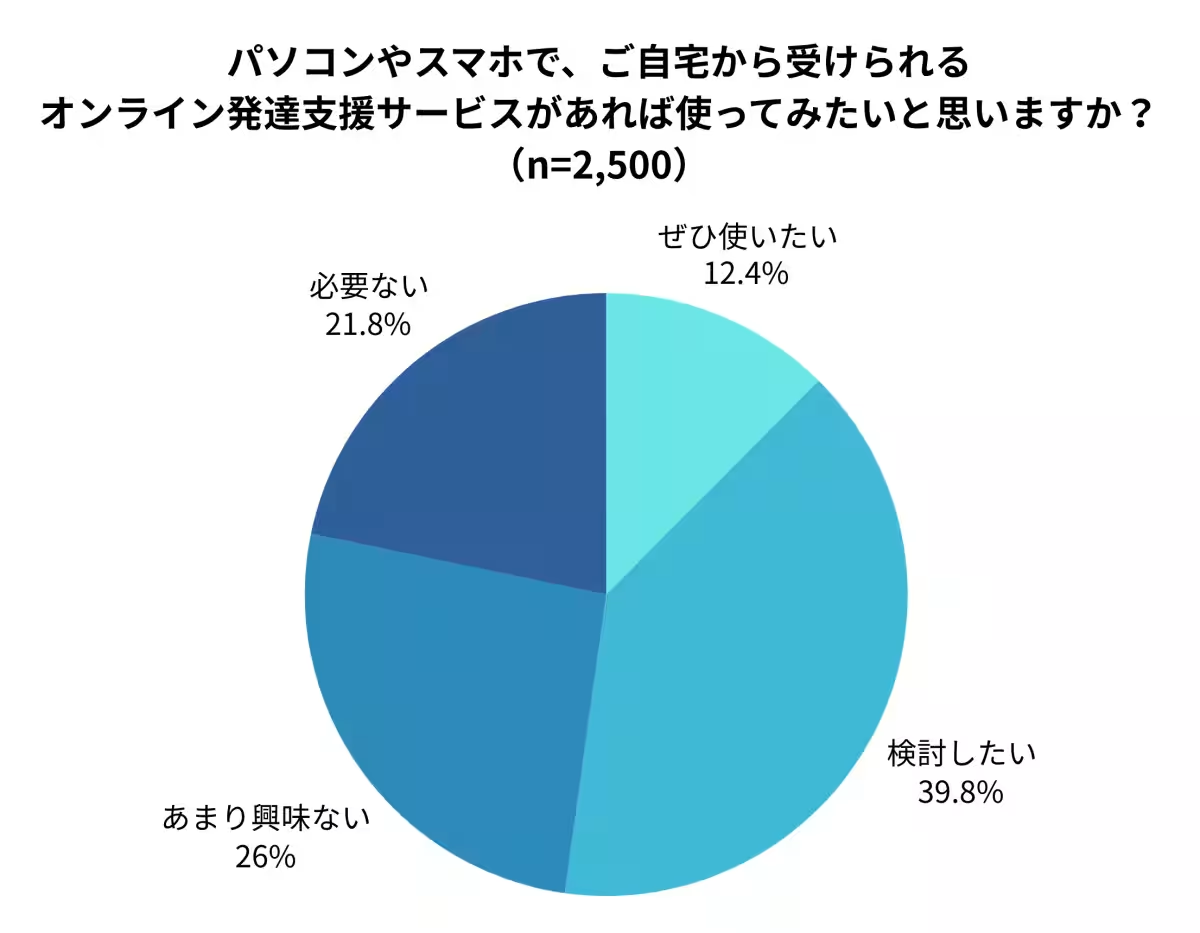

Topics Health)










【About Using Articles】
You can freely use the title and article content by linking to the page where the article is posted.
※ Images cannot be used.
【About Links】
Links are free to use.